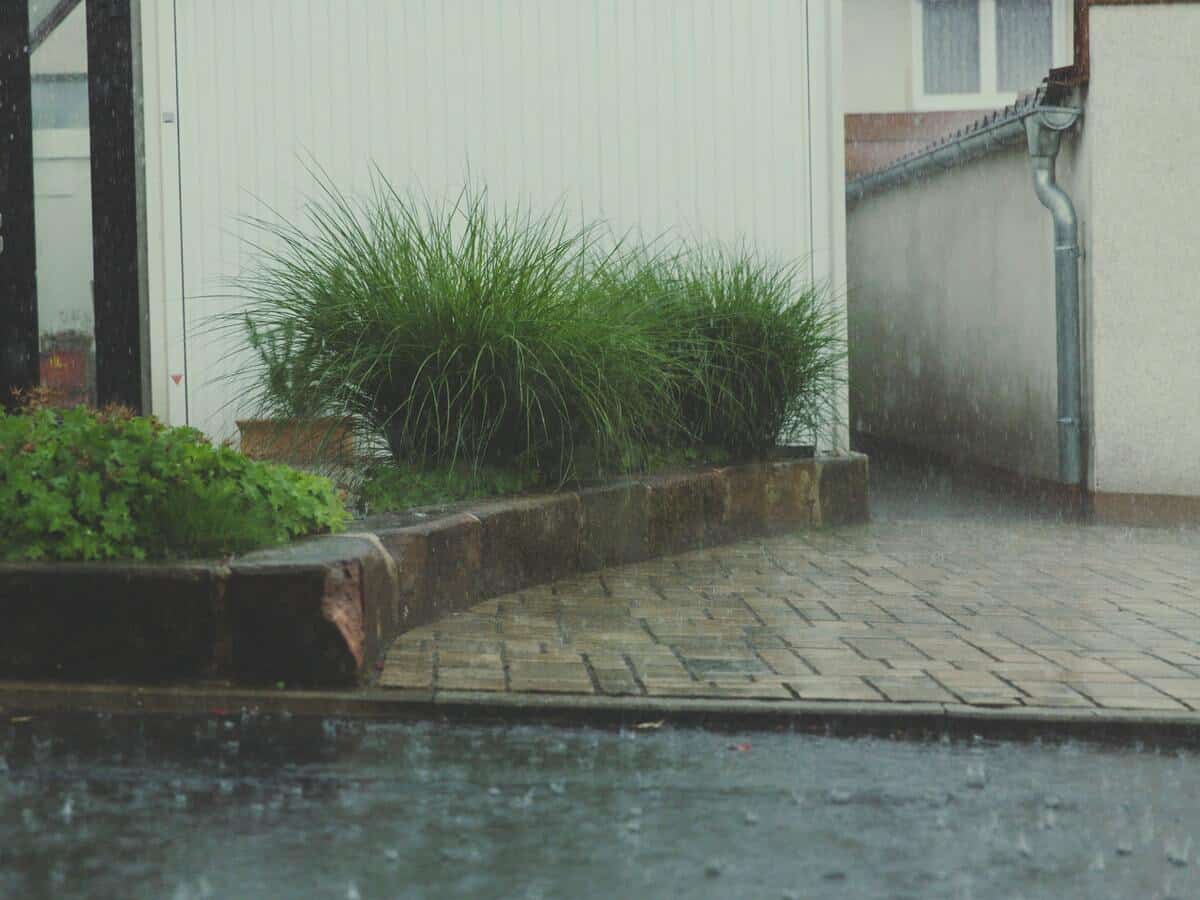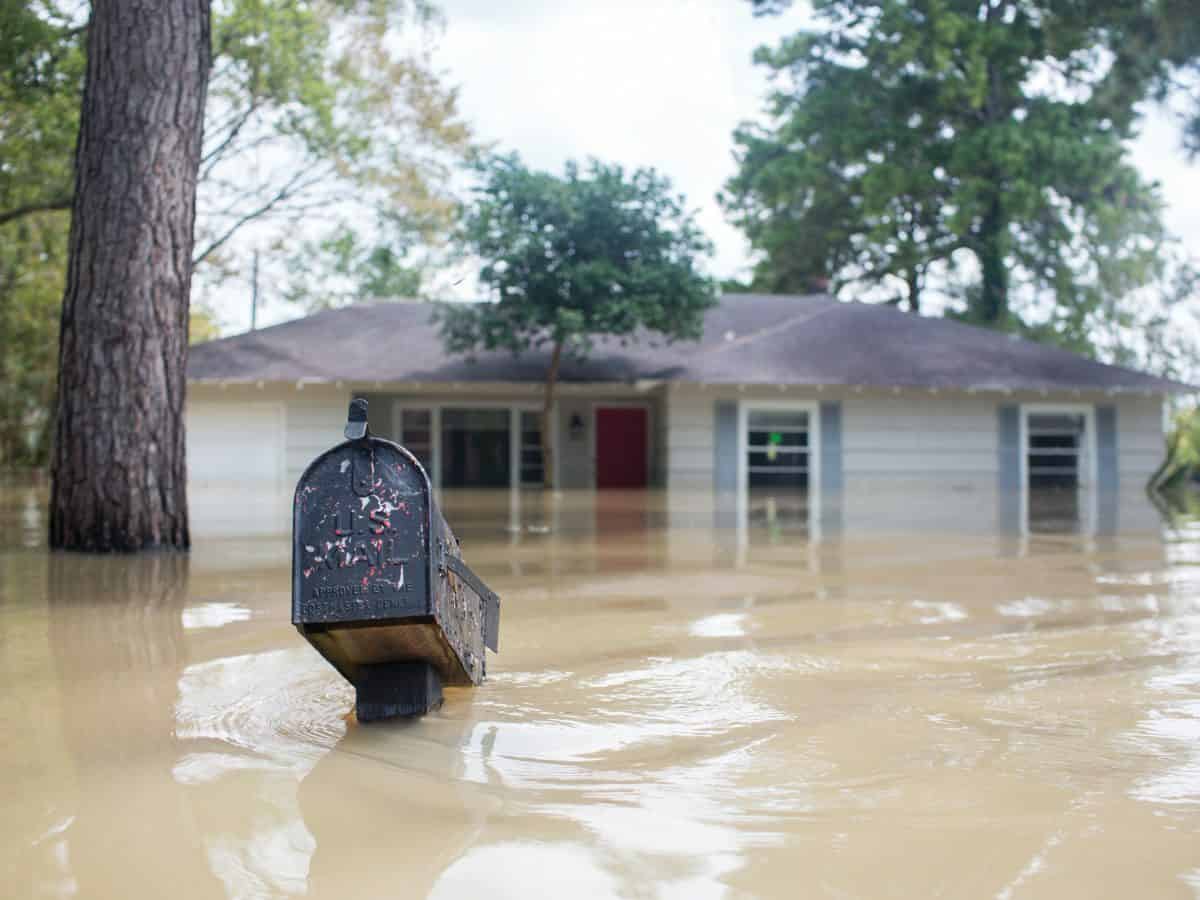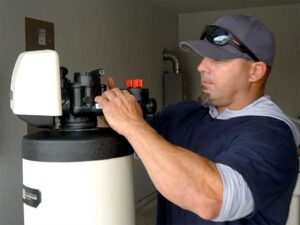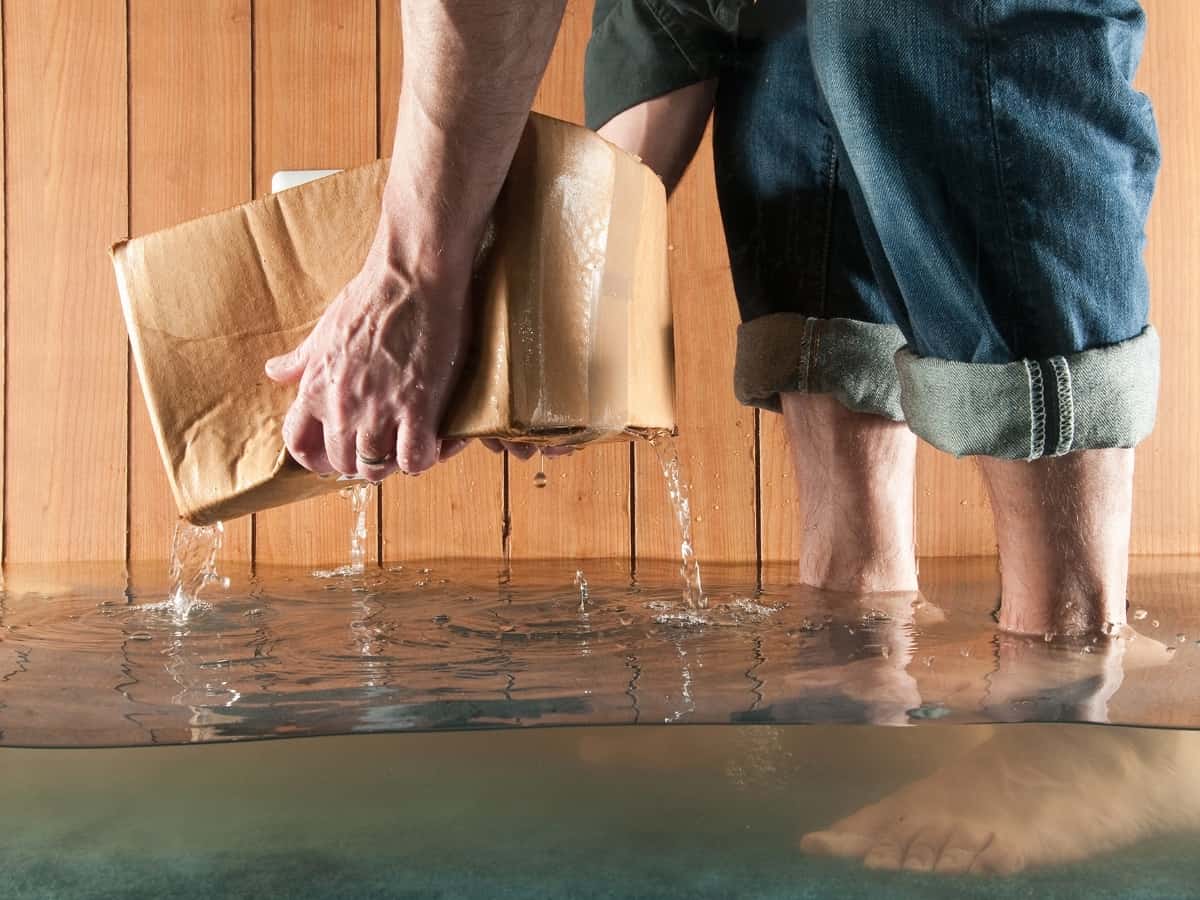With it being an especially rainy spring, you might have concerns over water damage in your home, or a flooded basement. There are different steps that you can take to ensure your home is protected against the elements! Additionally, we’re providing tips for what to do if you’re already faced with a flooded basement.
What Causes a Flooded Basement?
There are a few culprits for flooding, and springtime seems to be the peak season for in-home flooding.
- Plumbing: this could result from a burst or leaking pipe, a leaking waste line, a broken supply hose in your washing machine, or a leaking water tank or water heater.
- Leaking windows: in this case, your window wells fill with water from a flooded yard or clogged gutters. Knowing this, don’t be surprised if water then leaks into the basement through and around the windows. Additionally, leaking windows can occur from windows that were not installed correctly.
- Cracked foundation: this is by far the most common cause of basement flooding. Excessive amounts of rain, poor yard drainage and sewer backups are your most common culprits behind a leaking foundation. Fortunately, this is a problem that can be easily fixed through installing a warrantied, industry leading waterproofing system.
- Persistent rain (like in the spring months) causes a soil saturation problem. This creates hydrostatic pressure, forcing moisture through basement walls and floors.
- Loose soil around the foundation absorbs excess water and moisture. Then, your gutters and downspouts end up clogged with rainwater by the foundation. As a result, the soil expands and creates sideways pressure up against the foundation. This causes leaks and foundation issues.

How to Prevent a Flooded Basement
Water Sensor
Have you ever heard of a water sensor? A water sensor is a piece of equipment that notifies you the moment that there is a leak. Say goodbye to flooded basements with this new piece of technology, a great addition to any home. According to The Balance, one of the most common home insurance claims has to do with water. When it comes to water claims, there’s either weather related or non weather related claims. So, if your basement floods due to weather, you’ll need flood insurance. But, if your basement floods due to a house leak, then home insurance and non-weather related claims are the route to go with.
You can connect your water sensor to any of your household appliances or pipes. Popular areas for leaks to occur are washing machines, dishwashers and water heaters. Additionally, placing a water sensor under your kitchen sink is a great option.
Is Your Lawn On a Slope?
If your home has a yard that slopes towards the house, and not away from the house, your home is at risk for a flood. The reason that these homes are more likely to flood is due to the fact that the water needs to go somewhere during a storm. Ideally, you’d want a home that slopes away from the house, so the water runoff goes away from your home and towards city streets and gutters. If you have a home with the yard sloping towards the house, you have a few options on what to do.
The biggest thing you can do is try a different landscaping solution to add a nice aesthetic to your yard, while simultaneously decreasing flood risk. These changes include:
- Diverting rain spouts
- Digging an indentation to divert rain
- Using heavy mulch
- Installing a rain garden
- Install a green roof
Clean Out Gutters
This isn’t the most glamorous thing to do, but it’s really efficient in preventing basement flooding. The best time to clean out the gutters is in the spring and fall time. During heavy rains, gutters need to drain properly. If your gutters are filled with leaves and other debris, they aren’t draining correctly and are at risk of leading to a flooded basement. This happens because the blocked gutter forces water to dump below the foundation, onto the perimeter of your home.
Installing a Sump Pump to Prevent Flooded Basement
This is a proactive preventative solution, so you aren’t spending money on a flooded basement. Installing an automatic sump pump in your basement keeps water buildup off of your basement floor. It takes rainfall and acts like a floor drain. It keeps water off the foundation and redirects it to an area that is out of danger. There are options for a backup sump pump in the emergency that the first one is not working. These are typically battery operated in case the power goes out.
Product Spotlight: Qolsys IQ Water Valve
Looking for a great solution for your water sensors that doesn’t require a plumber? The Qolsys IQ Water Valve is for you. This product is a retrofit servo that operates with ¼ turn ball valves and pipes between ½” to 1 ¼”. The installation process is quick, easy, and you can do it all yourself. This valve helps you detect leaks for both indoor and outdoor use (just keep it out of the sun!). All information is sent right to your IQ panel for reliable and quick information. It is both waterproof and dustproof, designed for the maximum coverage for homes.
How to Clean Up After A Basement Floods
So, your basement flooded. There are so many things that need to be done after the flood, so you might not know where to start and can feel overwhelmed. These floods can happen quickly, and often without you even noticing when it does happen. It can create a huge mess and destroy furniture, precious family heirlooms, and even electronics. So when it comes to cleaning up, where should you start?
To start, you’re going to want to reach out to a few companies, depending on your need. For safety reasons, you should call your power company, an electrician or a flood clean up program if there is a substantial amount of standing water. You should not step into the water until you know that your service has been disconnected. Otherwise, you could end up electrocuting yourself.
Next, make sure you don’t delay. The faster you can clean up the water, the better shape you’re going to be in. So do not delay it! Go ahead and mop up the water from the floor and inspect any damage. If you haven’t had a storm, you may have an issue with clogged drains, your sump pump or even a backed up gutter. You’ll have to figure out the root cause of the flood. Remember, it doesn’t take a long time for mold to form, so make sure that you mop up the water and leave out your damp possessions to dry out as soon as possible.

Ways to Remove Water in Flooded Basement
There are a couple different ways to remove the water, depending on how much is present.
- Not a lot of water? Just go ahead and use towels to wipe the water up, but just make sure to wash and dry everything to prevent mold growth.
- If there are a few inches of water on the ground, you can get away with removing it with a wet vacuum. In case you don’t own a wet vac, you can rent or borrow one! Using a wet vac is the easiest solution for basements with a few inches of water.
- In the event that there is major water damage in your basement, you should look into using a professional service to get rid of the water.
Next Steps After Removing Excess Water
Once the water is gone, you get the fun task of drying everything out. You’ll need to dry out the belongings to discourage any growth of both mold and mildew. For best results, use a dehumidifier and a fan. Keep them away from the walls for optimal air circulation. Keep the air conditioning in your home running constantly until everything is cleaned, and throw away anything that could hold moisture, such as cardboard boxes. For documents, either dry them or freeze them so they are not damaged.
If you have flooring that is vinyl tile, linoleum or other hard surfaces (not carpet or hardwood flooring), you’re going to want to scrub it with a solution. This solution consists of eight tablespoons of chlorine bleach and one gallon of water. Do not do a solution with more bleach, you can make a smaller batch of this solution (for example, 4 tablespoons of bleach and half gallon of water). Then, you’ll want to scrub this on the floor. Make sure you are protecting your eyes and skin by wearing rubber gloves, boots and protective eyewear. If you have windows, open them for proper ventilation.



